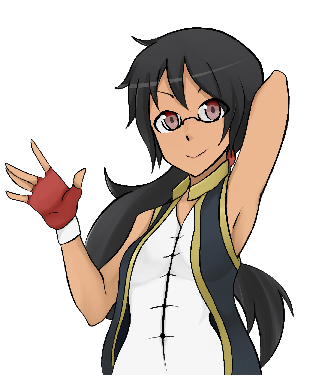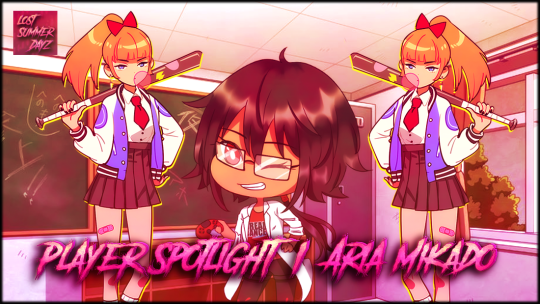Lost Summer Sunbeams #2: Player Spotlight – Aria Mikado
Our second spotlight this week will focus on an esteemed player and contributor within the FGC in her own right. Coming fresh from an ambitious project that brought a portion of the community together for a combo video, here’s our Sunbeams player spotlight, Aria Mikado!
If you hadn’t already seen this awesome video, please check it out below!
This was a community combo video project that brought over twenty different contributors over the span of thirty games, nearing to the total of a hundred different combos! This thirty-minute ode to fighting games can be seen as a love letter not just to the FGC, but to all various types of fighting games as a whole. If there was a fighting game, both known and obscure, that you could think of, chances are, it was featured.
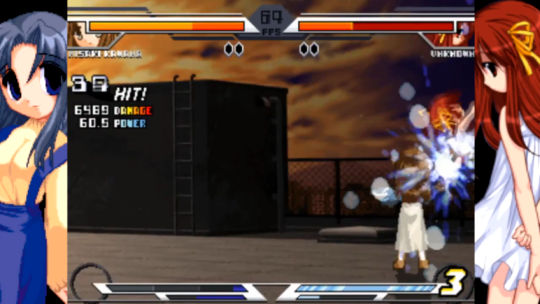
Due to how large this project was, the end result was a clean presentation with almost professional-like quality. When I asked her if she made something like this before, she had this to say.
AM: Basically a friend of mine and I were fans of the old school combo vids done in a similar manner. They kind of fell off over time, and we kinda felt like they needed to be a thing again. We like the concept of people pushing their creativity. We like seeing the skill on display. We like seeing people bring up games that didn’t really get a lot of time to shine and showing off what they’re about so people can maybe get interest in them.
Having a friend push you to do your best and vice versa is one of the best qualities anyone can have, especially in the community. Then came the inevitable question. How long has Aria been invested into fighting games?
AM: I’ve been playing fighting games since I was really young. The earliest one I can actively remember, like most, is Street Fighter II. I played a variety of them, though, as years went on, and I just found myself more fascinated with what was possible in those games as opposed to JUST trying to figure out how efficiently I could bat someone around, though in some ways, they go hand-in-hand. Eventually, I just wanted to take the things I could learn to try to teach people things, or at the least, to try to show people something cool, if possible.
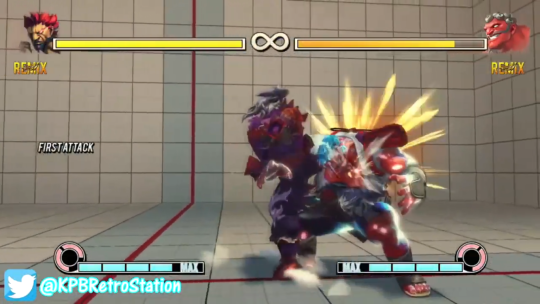
Exploring “what’s possible” within said games is the cornerstone for new strategies being formed. This isn’t evident not just in fighting games when you “lab” in practice mode, but in other gaming communities as well. How does this tie into bringing people from various corners of the community onto the project?
AM: My aim with the community combo video is always to bring people from different walks of life, at differing skill levels, together to give people a chance to show what they think is cool. For a lot of people I’ve talked to, there’s a layer of intimidation when it comes to the concept of putting themselves out there, whether it’s making tutorials or exhibition videos of any sort. My HOPE for the community CMVs is that they get to express themselves alongside others, and for them to be able to say “I was part of something cool.”
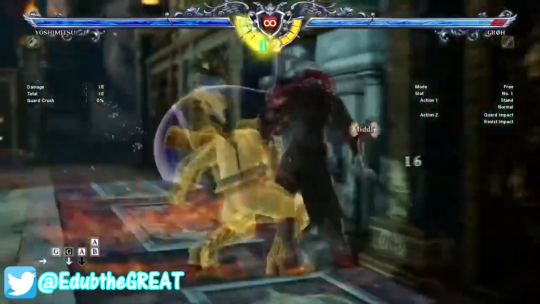
AM: We also want to be able to show our love for the FGC. Fighting games have a deep history, more than what’s covered by just the games you see on the main tournament stages. The community CMVs usually bring a decent bit of variety, so people get to see games they may not have even known about.
And what about being a content creator?
AM: I think there’s a good deal of importance to it, honestly. Whether you’re an avid content creator or a steady tournament player, supporting the scenes for the games you love is important for keeping those games, and in turn, the FGC itself, strong. There’s also the factor of sharing information. I’d like to think that everyone in the FGC has their place. Content creators that make exhibition and tutorial vids can often dig out things very quickly that even some of the best players can overlook, so circulating that kind of information can be crucial to the growth of a game.
Don’t just simply mistake her as someone who exclusively theory crafts and create cool videos for the masses. She’s also naturally a fighter and a competitor herself!
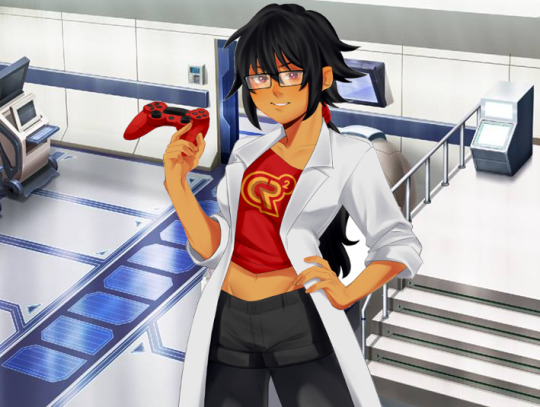
AM: The first tournament I actually went to offline is Gwinnett Brawl, in Georgia. Pretty fun tourney experience, all things considered. It was a good starting point for someone like me that has severe anxiety issues, since it was an overall smaller venue. Personal hurdles aside, though, I’ve attended other locals, multiple Final Round tournies, and EVO, back in 2016. All fun experiences, and I got to meet friends I’ve known online for years, so massive bonus there.
AM: Just getting to see how I stacked up against others in games I loved playing was interesting, with EVO being the most prominent for me. Tied for 16th in the Nitroplus Blasterz side tourney that year, knocked into losers by one of my best friends, so I can’t complain about that but so much. Definitely prefer being a content creator, though. I love to teach things when and where I can, and hope to help others progress if I can.
While at the time of writing, the thrill of competition has been placed on the backburner for Aria, the passion for fighting games hadn’t wavered. Perhaps a huge part of her identity is the voice she provides to others who are like her. An inclusive voice that the FGC has always been in need of.
As someone who is LGBT and isn’t afraid to identify with who she is as an individual, Aria represents the many members of the FGC who fights for inclusiveness.
I asked her what advice she could give to someone who is in the FGC that may find it difficult to come out and embrace their identity and individuality. I also asked about the current state of the FGC with its inclusion and representation of LGBT players.
AM: I think the representation of trans and non-binary players is integral to the overall growth of the FGC. Being accepting of LGBTQ+ players as a whole is important for ANY community, but the FGC in particular has seen its share of toxicity, both in a general sense, and in regards to bigotry within the community. As we’ve seen, though, the FGC is also capable of some truly amazing things when we come together, so players being supportive one another, regardless of orientation, is paramount to bringing more people in the community together.
AM: As far as LGBTQ+ people who are hesitant to embrace who they are within the FGC, it’s a tough road to walk in general, so it’s understandable. Coming from someone who’s been through troubles herself with coming out as trans to my family, It’s all the more important that you accept and represent who you are, not only for yourself, but because your courage in doing so might in turn give others the boost THEY need to move forward and accept themselves. We have to support and care for one another. The FGC can be awesome for EVERYONE, and we can, and should show that.
A powerful answer from an equally powerful person. At the end of the day, it doesn’t matter if you’re a high level competitor or a “casual” player. If you prefer to provide content via streaming or YouTube videos. Even if you’re writing about players and the FGC in general via articles! It doesn’t matter if you’re cis or LGBTQ+.
Everyone who is a part of the FGC is all under one roof, one community. Watching her community combo video and seeing all of us, myself and my friends included, contribute. All of us from various backgrounds, various disciplines, and various histories. We can all come together to create something beautiful if we all put our heads together.
As far as Aria goes, expect a lot of things planned from her this year! Including a new super top secret YT channel! Thank you for taking the time to answer these questions once again!
